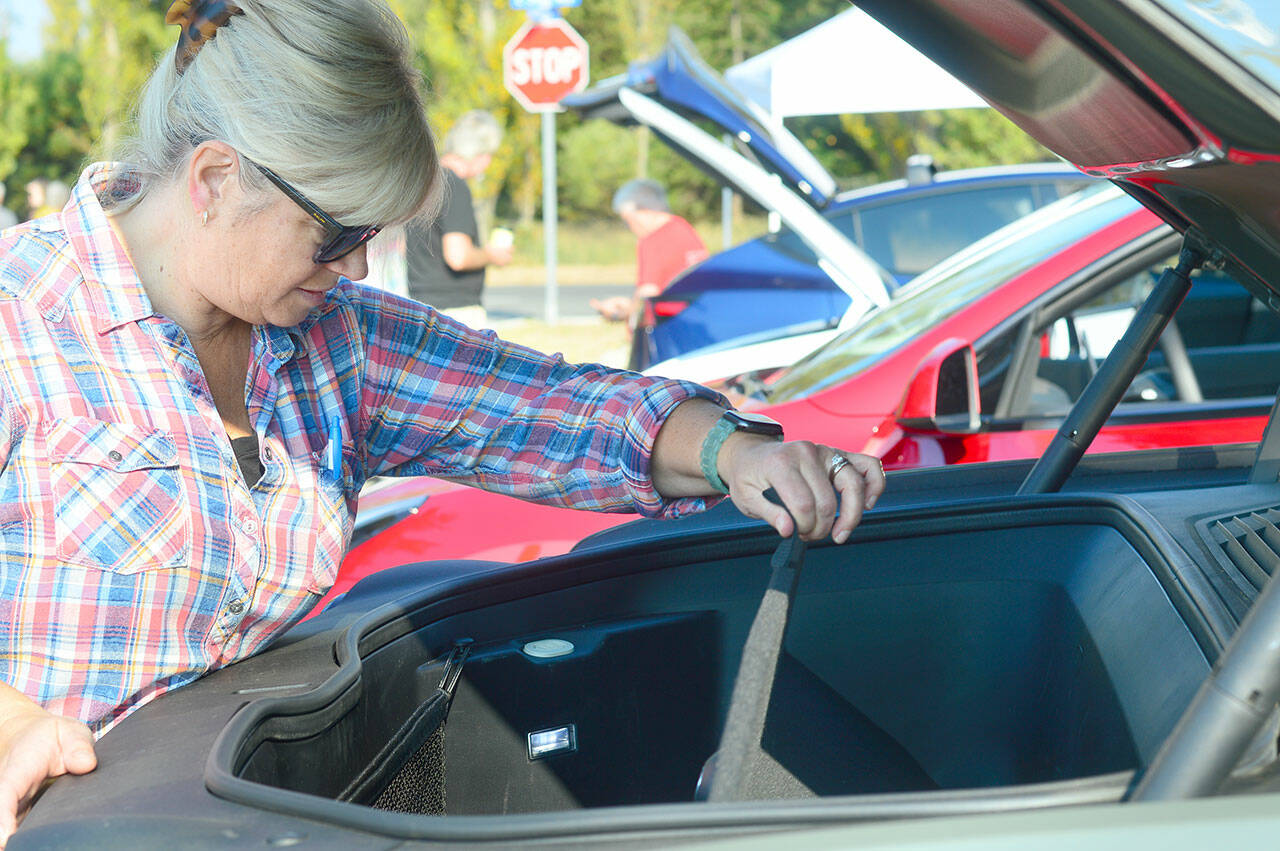PORT TOWNSEND — It used to be that looking under the hood of a car meant checking out the engine and hoping you wouldn’t get covered with oil and soot.
When 88-year-old Ivan Flettre of Port Hadlock looked at the Ford F-150 Lightning at the Jefferson County Chamber of Commerce EV Expo on Saturday, he examined the roomy space under a removable panel on the floor and commented, “You could put a case of beer in there.”
The immaculate area under the truck’s hood — Ford calls it the Mega Power Frunk — that is indeed intended for cold items is just one of the selling points of the popular full-size electric pickup that customers have to place a $100 deposit on just to to be able to order when a vehicle actually becomes available.
The EV Expo offered the curious, the converted and the uncommitted an opportunity to speak with owners who displayed their electric vehicles on the chamber property. The vehicles represented a range of manufacturers including Volvo, Tesla, Chevrolet, Rivian, Nissan and Ford.
Attendees could also attend informational panels on EV financing, charging, environmental impact, and one featuring owners.
Deborah Stinsman and her husband, Kim Clark, said they were happy with their two older cars but were considering purchasing an electric vehicle at some point.
“They’re better for the environment, but I’d also like to see what happens with solar vehicles,” Stinsman said. “My husband drives a 2010 Prius, and that was kind of our entry into green cars. But I can wait five years until prices go down and they work all the bugs out.”
According to Edmunds.com, the average price of an electric vehicle in the United States is around $65,000. The cheapest, the Nissan Leaf, starts at around $27,400.
The cost of an electric vehicle had also kept Rosanna Herman of Port Townsend waiting instead of buying.
“We’re looking to upgrade, but it’s definitely cost,” Herman said.
Herman drives a Kia Niro plug-in hybrid that got 75 mpg on a recent trip to California.
“It’s a great car,” she said. “But we’d like to be all electric.”
John Flettre, Ivan Flettre’s son who was visiting from Tucson, Ariz., said he hopes people realize that electric vehicles have an impact on the environment just like fuel-powered ones do.
“That electricity has to come from somewhere,” he said. “On the East Coast, that’s coal, and here, it’s hydroelectric. And the elements in the batteries come from China and the [Democratic Republic of] Congo.”
Emily Flettre, Ivan Flettre’s granddaughter who was visiting from Winnie, Texas, said buyers need to understand problems related to disposal of the lithium-ion batteries that electric vehicles use and that can release toxins and heavy metals into the ground.
“What do you do with the old batteries?” she asked. “Throw them in a landfill?”
John Flettre, who drove a 2016 Subaru Forester, said he was not completely against buying an electric vehicle.
“I’d consider when the prices go down,” he said. “And when they eliminate the ‘cool’ factor.”
________
Reporter Paula Hunt can be reached at paula.hunt@soundpublishing.com.

